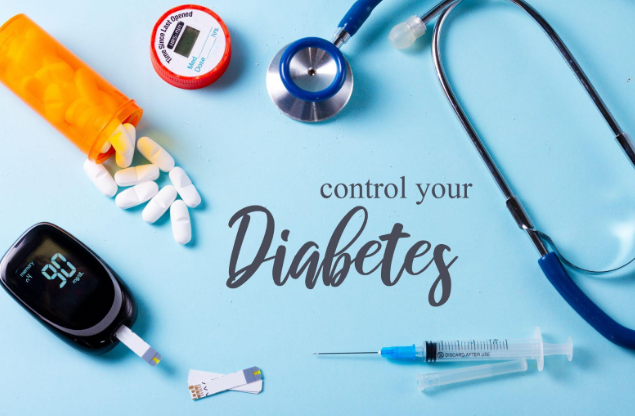Understanding Diabetic Awareness and the Importance of Comprehensive Diabetes Management
Understanding Diabetic Awareness and the Importance of Comprehensive Diabetes Management

Diabetes is more than just a chronic condition; it affects every system in the body and requires constant monitoring, lifestyle adjustments, and professional medical support. Modern management strategies now go beyond basic glucose monitoring to include cardiovascular evaluations, eye health monitoring, foot care, blood pressure management, and continuous patient education. Understanding these can drastically improve outcomes and reduce complications.
Understanding Diabetic Awareness
Being aware of your risk factors and recognizing early symptoms is the first step in controlling diabetes. Many with prediabetes or type 2 diabetes may not notice symptoms until damage occurs. Fatigue, frequent urination, increased thirst, and unexplained weight loss are often overlooked or mistaken for other issues.
Diabetic awareness is about more than symptoms; it’s also about identifying who may be at risk. You should be looking out for factors like
- Family history of diabetes
- Sedentary lifestyle
- Poor diet and high sugar intake
- Obesity or overweight
- High blood pressure or cholesterol
- History of gestational diabetes
Knowing the Different Types of Diabetes
Identifying the type of diabetes you have is the first step in developing a long-term treatment plan that supports your health.
- Type 1 Diabetes: It is an autoimmune disease where the body destroys insulin-producing pancreatic cells. It usually starts in childhood or teenage years, but can occur at any age. People with Type 1 need daily insulin and regular medical care to manage their blood sugar.
- Type 2 Diabetes: This is the most common type. It often happens due to lifestyle factors like being overweight, not exercising, or eating poorly, though genetics can also play a role. In this type, the body doesn’t use insulin properly or doesn’t make enough. Some people can manage it with healthy habits, but others may need medication.
- Gestational Diabetes: Happens during pregnancy, usually in the second or third trimester. Blood sugar levels may go back to normal after birth, but there’s a higher risk of getting Type 2 diabetes later. Managing it with healthy food, monitoring, and medical help is important for both mom and baby.
Why is Early Recognition Necessary?
Early detection allows for lifestyle interventions and personalized care that can delay or prevent the onset of complications. Clinical teams can identify risks through routine screenings and provide strategies tailored to your profile. Some of the major markers to diagnose include:
A1C Testing
Instead of showing a single moment like a fingerstick glucose test, A1C reflects your average blood sugar levels over the past two to three months. It helps assess how well your diabetes is being controlled and plays a key role in both diagnosis and ongoing treatment decisions. Regular testing every 3 to 6 months helps your provider adjust medications, diet, or lifestyle
Why Keeping A1C in Target Range is Important
Keeping your A1C in your target range, usually below 7% for most adults, can greatly reduce your risk of serious health problems. It helps prevent nerve damage, vision loss, kidney disease, heart disease, and stroke. Even small reductions in your A1C can make a meaningful difference, significantly lowering the likelihood of these complications over time.
Managing Hypertension
Many individuals with diabetes also suffer from hypertension, and the combination significantly increases the risk of stroke, heart attack, and kidney disease. Maintaining optimal blood pressure levels, generally under 130/80 mmHg, is just as important as managing blood glucose.
Your doctor may prioritize this dual-focus care model to address both conditions simultaneously and prevent long-term damage. With the advanced management protocols, they will focus on:
- Regular blood pressure checks during clinical visits.
- Medication adjustments are made based on individual tolerance and target goals.
- Lifestyle counseling to reduce sodium intake and increase physical activity.
- Coordinated care to monitor for secondary issues like kidney impairment.
Diabetic Eye Exams
Diabetes can damage the tiny blood vessels in the retina over time, leading to diabetic retinopathy, one of the most common causes of vision loss in adults. During a comprehensive eye exam, specialists use advanced retinal imaging to identify early warning signs such as microaneurysms, hemorrhages, or abnormal blood vessels. These exams also help detect macular edema, which causes swelling near the center of the retina and can affect sharp, central vision.
In addition to diabetic retinopathy, eye exams screen for other conditions that are more common in people with diabetes, such as glaucoma and cataracts. These issues may not cause symptoms early on, but they can lead to significant vision problems if left untreated. When changes are caught early, treatments like laser therapy or anti-VEGF injections can be started promptly to prevent further damage and maintain eye health over the long term.
Routine Foot Exams
Diabetic neuropathy can reduce sensation in your feet, making it difficult to notice injuries or pressure points that may lead to infections or ulcers if untreated. To prevent these complications, your care team performs comprehensive foot exams during routine diabetes visits. These evaluations check your:
- Skin health, moisture, and circulation
- Sensory function using specialized tests like monofilament or vibration assessments
- Structural changes such as bunions or hammertoes
- Signs of fungal infections, calluses, or pressure sores
In addition to these clinical exams, you’ll receive education on daily self-checks at home to help identify potential problems early. Prompt detection allows for effective wound care or podiatric treatment, significantly reducing the risk of serious outcomes such as amputation.
Chronic Care Management in Diabetes Care
Chronic Care Management (CCM) programs offer structured, ongoing support for individuals with diabetes, especially those managing multiple conditions. These programs coordinate your care team, specialists, and support staff. This clear communication improves outcomes and avoids gaps between providers.
Its benefits include:
- A dedicated care coordinator who tracks your goals and appointments.
- Monthly check-ins to address medication adherence, side effects, or symptom changes.
- Health education and nutrition guidance tailored to your diabetic profile.
- Increased communication between providers, pharmacists, and labs.
Advanced Technology Integration
Healthcare providers use digital tools such as electronic health records, patient portals, and remote monitoring devices to continuously track your health metrics. This real-time data allows your care team to promptly adjust medications, lifestyle guidance, nutrition plans, and referrals to prevent complications.
These tools give you with convenient access to test results, secure communication channels, and timely reminders for appointments and lab work, making your care more connected and proactive.
How We Provide Complete Care for You
During your yearly physicals, we check important areas like your heart, kidneys, liver, and nerves with tests such as blood work, urine tests, and heart screenings when needed. We also perform skin checks and cancer screenings based on your age.
We coordinate your care with all your specialists, like your primary doctor, endocrinologist, heart doctor, eye doctor, foot specialist, and nutritionist. By working together, we make sure your treatment is consistent, referrals happen quickly, and you avoid unnecessary tests, offering the best care possible to stay healthy long term.
Looking for prompt diabetic care?
Schedule your appointment with our care professionals at
Silver Pine Medical Group to experience advanced, patient-centered diabetes management that supports every aspect of your health today!










